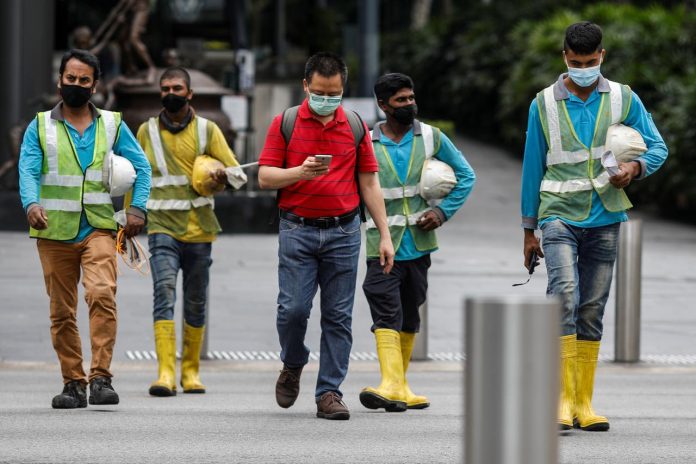The bulk of the increase in foreign employment last year was in jobs that do not “typically” fall under the types Singaporeans want to do, Manpower Minister Tan See Leng said in parliament on Tuesday. Dr Tan also urged against drawing divides as well as viewing resident and foreign employment as a “zero-sum game”. Last year, employment in Singapore grew by 88,400, with 83,500 of those jobs going to non-residents. Of the 83,500 new jobs that went to non-residents in 2023, the bulk was due to an increase in the number of work permit and other work pass holders in sectors such as construction. That made up 64,800, or more than 77 per cent of the employment growth. “These are not typically the type of jobs that Singaporeans want to do.” The rest of the increase in non-resident employment – around 18,700 – was for Employment Pass (EP) and S Pass holders, which are for higher-skilled workers.
The increase in resident employment stood at 4,900, although Mr Giam pointed out that Dr Tan did not provide a breakdown of whether these jobs were for professionals, managers, executives and technicians (PMETs) or not. “The growth last year in EP and S Pass holders exceeded growth in resident employment as … non-resident PMET employment is still recovering from the pandemic,” the minister said. Resident employment has increased every year since 2019 as the government worked to protect jobs during the pandemic, but the number of EP and S Pass holders at the end of last year had not recovered to the level seen before COVID-19 hit.
“The larger proportion of growth attributed to EP and S Pass holders last year did not affect PMET resident employment at all,” said Dr Tan. He noted that there is a global shortage of skilled talent, and that cities around the world are competing for investments and for human capital. “To stay competitive and to nurture a vibrant corporate ecosystem, we need to ensure that our businesses can access talent and they can expand,” he said.
As for jobs for residents, MOM said that Singapore is close to full employment. The resident employment rate was 66.2 per cent in 2023, which is among the highest rates among advanced economies. The resident unemployment rate and long-term unemployment rate were also low, at 2.7 per cent and 0.7 per cent respectively. Between 2013 and 2023, the number of resident PMETs grew far more than the number of EP and S Pass holders, the minister said. Specifically, in growth sectors such as finance, infocomm and professional services, resident PMETs increased by 190,000, while the number of EP and S Pass holders grew by 20,000. Dr Tan pointed out that MOM regularly updates the qualifying salaries for EPs and S Passes to ensure that the holders are of high-quality and maintain a level playing field for locals. The ministry’s Complementarity Assessment Framework also evaluates EP candidates “holistically”, including individual and firm-related attributes. “This ensures that employers bring in the right profile of foreign workers to complement our local workforce.” When thriving businesses have access to “complementary foreign talent”, more jobs can be created and wage outcomes can be improved. “By growing our economic pie, we will be better able to secure positive outcomes for Singapore and Singaporeans.”
Source: CNA/an(gr)




















